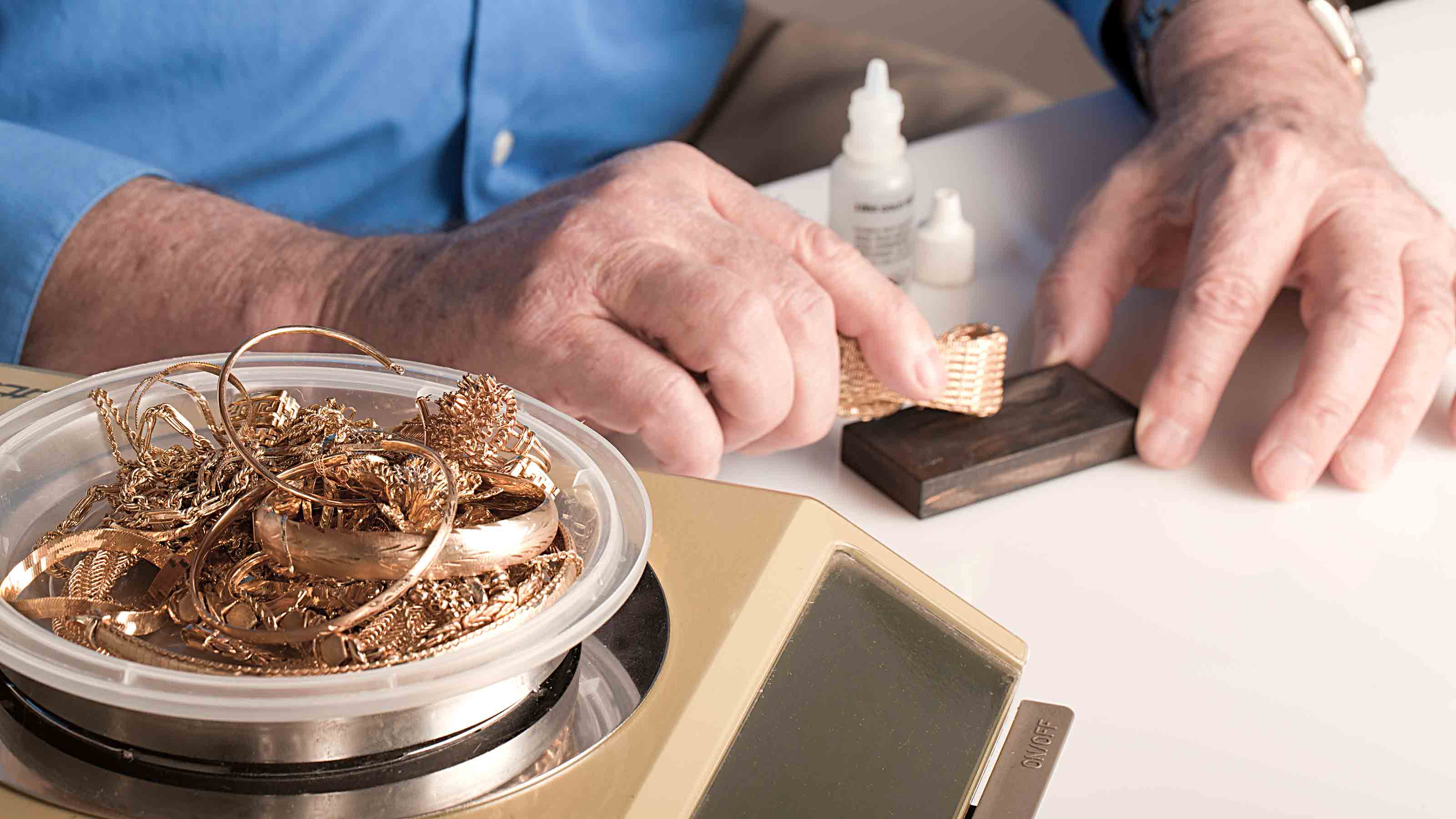32 Ways to Make Money in 2025
Check out these cool side hustles to earn bonus bucks this year.

Erin Bendig

Profit and prosper with the best of Kiplinger's advice on investing, taxes, retirement, personal finance and much more. Delivered daily. Enter your email in the box and click Sign Me Up.
You are now subscribed
Your newsletter sign-up was successful
Want to add more newsletters?

Delivered daily
Kiplinger Today
Profit and prosper with the best of Kiplinger's advice on investing, taxes, retirement, personal finance and much more delivered daily. Smart money moves start here.

Sent five days a week
Kiplinger A Step Ahead
Get practical help to make better financial decisions in your everyday life, from spending to savings on top deals.

Delivered daily
Kiplinger Closing Bell
Get today's biggest financial and investing headlines delivered to your inbox every day the U.S. stock market is open.

Sent twice a week
Kiplinger Adviser Intel
Financial pros across the country share best practices and fresh tactics to preserve and grow your wealth.

Delivered weekly
Kiplinger Tax Tips
Trim your federal and state tax bills with practical tax-planning and tax-cutting strategies.

Sent twice a week
Kiplinger Retirement Tips
Your twice-a-week guide to planning and enjoying a financially secure and richly rewarding retirement

Sent bimonthly.
Kiplinger Adviser Angle
Insights for advisers, wealth managers and other financial professionals.

Sent twice a week
Kiplinger Investing Weekly
Your twice-a-week roundup of promising stocks, funds, companies and industries you should consider, ones you should avoid, and why.

Sent weekly for six weeks
Kiplinger Invest for Retirement
Your step-by-step six-part series on how to invest for retirement, from devising a successful strategy to exactly which investments to choose.
Turning your downtime into something meaningful can be both fulfilling and financially rewarding. Whether you’re exploring a new skill, sharing your expertise, or simply making the most of your free time, there are plenty of flexible opportunities that offer purpose — with the added bonus of extra income.
Our diverse list is packed with plenty of tactics to earn extra cash — 32 ideas for you to consider, along with resources and pointers to get you started. Some are good for a quick buck, while others could turn into consistent streams of income — even a career. You could even get started on a few of these side hustles at the same time.
Find out which cash-generating ideas could work best for you.

1. Become an election officer
You can cash in on our right to vote on Election Day. Many localities need election officers, especially those who are bilingual. And while the hours may be long, the pay isn’t bad for a day’s work — although note that the day can be far longer than eight hours, frequently running from before polls open until after they close. During the day, you'll be responsible for setting up voting equipment, checking voter IDs, assisting in using the machines and organizing the results at the close of polls.
For example, in Fairfax County, Va., which needs thousands of poll workers, election officers are paid $250 for a full day (step up your game and get paid $300 as an assistant chief election officer and $350 as a chief election officer). In Monterey County, Calif., election officers are paid $135 (for clerks) and $185 (for inspectors).
Generally, to qualify, you must be at least 18 years of age and a registered voter in the state, be a U.S. citizen, read and write English and have transportation to the polling place. You’ll likely also have to devote time to attend a training class. Here’s a video about becoming an election officer.
Pro tip: Bring plenty to eat and drink. It’s a very long day, and you cannot leave the polling place to grab a bite.

2. Coach a youth sports team
As youth team sports return to the playing field, consider coaching. This gig could require some creative workarounds with a full-time job, but that’s the deal with most moonlighting work.
In the case of coaching youth teams, it often means late afternoon, evening and weekend availability, plus knowledge of the intricacies of a sport — soccer, hockey, softball, you name it. You'll also need the patience and talent to teach it to others (as well as manage the expectations of parents).
Many recreational youth sports clubs, especially travel teams, pay their coaching staff. The pay scale for youth soccer coaches on elite club teams, for example, tops out at around $2,000 per month at the highest level ($200-$400 per month at the lowest level, $500 to $2,000 per month for premier coaches), according to Job Monkey, a job-search website.
But note: You must be certified at various levels to earn that kind of money and have safety certifications, which may or may not be paid by the organization.
Some high schools around the country also rely on outside individuals to coach teams if teachers aren’t interested in taking those positions. (I coached high-school soccer and a club youth soccer team for a few years while also working my full-time job as a journalist.) Pay varies. I received $2,500 per season for coaching high-school soccer. Of course, from pre-season to post-season and all the daily practices and games in between, that’s not a lot of money — but it helped, and it was a lot of fun.

3. Teach
If you’re a professional, colleges and universities are always on the lookout for adjunct professors or lecturers. Some may require a master’s degree; others just a college degree and professional experience to share with students. I taught visual and print journalism at two esteemed J-schools — one required a master’s degree, which I have — for 10 years while holding down a full-time job.
The side hustles added several thousand dollars to my annual household income, and it was fulfilling to work with students eager to learn.
How do you get an adjunct teaching job? Reach out to community colleges, colleges or universities where you live. Depending on your specialty — say, accounting — contact the department head in that particular school and inquire about becoming an adjunct.
How about substitute teaching? Grade schools and high schools nationwide are looking for people to substitute teach. Some districts hire directly, while others have outsourced the hiring process.
ESS, a Knoxville, Tennessee-based K-12 educational staffing firm, works with more than 750 school systems in 28 states to fill substitute teacher and other staffing positions with its base of more than 100,000 substitute and permanent employees.
The company says it fills many nonteaching roles that don’t require certification. These are filled by people who are maybe getting their feet wet, seeing if they want to pursue a teaching career. It varies by state and school district, but some don’t require substitutes to have teaching certification. Pennsylvania, for example, allows people with a bachelor’s degree to apply for a one-year emergency certification to substitute. Check the websites of school districts in your area to see if they are hiring substitutes.
Pay varies by district. The Fairfax County Public School system, for example, pays substitute teachers $19.43 per hour for short-term assignments or $26.12 for long term. Here’s a state-by-state guide to requirements, and in some cases, pay and benefits, for substitute teachers, courtesy of the National Education Association.

4. Be a tour guide
Becoming a tour guide for your local museum or national park can help you earn extra cash while doing something fun — especially during peak tourist season.
For example, if you live near a historic site overseen by the National Park Service, you could become a licensed guide with the Association of Licensed Battlefield Guides. The Licensed Battlefield Guides of Gettysburg, the Pennsylvania site of one of the most epic battles of the American Civil War, are the only individuals allowed by the National Park Service to conduct visitors around the national park for a fee.
Rates for a two-hour basic battlefield tour range from $70 to $152 depending on group size, with prorated fees of $35 to $76 per hour for additional time. Tips are not required but are often given.
For more information about becoming a tour guide, check out the National Federation of Tourist Guide Associations and click on "Our Members."

5. Sell unwanted electronics
Dormant smartphones, tablets, computers or game consoles often find their way to a desk drawer or the back of a closet. You can easily cash in on your unwanted electronics — even damaged items — by selling them online.
Sell at one of ecoATM’s thousands of kiosks and get instant cash. Use the site to find one near you. They’re located in Walmart stores, Kroger supermarkets, malls and other locations (I found two in the small Virginia city where I live).
Or try uSell, where you can sell smartphones, tablets, game consoles, etc., and get paid by check or through PayPal. Shipping with all of these sites is free.
You can also bring your video games, game consoles, smartphones, tablets and accessories to GameStop to earn cash or store credit without the shipping hassles. Before you donate, however, make sure those old-school games you've been holding on to aren't worth a fortune; you'd be surprised by how much certain games will go for on eBay.

6. Search for unclaimed property
There are billions of dollars worth of unclaimed property in federal and state coffers. Some of it could be yours, but it’s up to you to track down the cash.
The feds hang on to tax refunds that are returned to the IRS because of mailing address errors, or ones that taxpayers never claimed because they didn’t file returns. The government also holds on to forgotten savings bonds, government-guaranteed mortgage insurance refunds and government pensions that were never claimed.
There’s no central database, so you’ll have to check with individual federal agencies about missing funds. Here's a list of government agencies that have databases where you can search for unclaimed money.
State governments hold onto uncashed dividend checks, returned utility deposits, unclaimed state-tax refunds, uncollected insurance benefits and stock dividends, among other things. (If a bank or other payer doesn’t have your last known address on file, it will turn over your money to the state where the institution is incorporated.)
You can search for unclaimed property held by states at Unclaimed.org. The New York State Comptroller’s office, for example, reports it returns $1.5 billion yearly in unclaimed funds to people who file a claim.

7. Tutor
If you have a special skill — whether it’s the ability to play an instrument well, paint like Picasso or explain calculus in a way anyone (even I) can understand — you may be able to make money sharing it with others. For example, you could earn $10 to $75 an hour tutoring individual kids or college students if you speak a second language or have great math, science or writing skills.
Advertise your services on school, campus and community bulletin boards, or tutoring websites such as Wyzant (where you choose your hourly rate) and The Princeton Review’s Tutor.com. And take advantage of social media sites, such as Facebook, to let people know about the lessons you’re able to teach.

8. Model for artists
Modeling is another great way to earn money. If you’re comfortable posing nude in front of artists and are capable of holding poses for as long as 30 minutes, consider life modeling. Artists want to draw bodies of all shapes and sizes in order to hone their skills. According to ZipRecruiter, the average hourly pay for an art model in the United States is $20 an hour.
During sessions, models start with short one-minute gesture poses, then transition to longer poses lasting from five to 30 minutes. If you’re interested in becoming a life model, contact art schools at local colleges, art organizations and community centers. Local arts publications may also have ads seeking models (all of which you should vet).
If you’re uncomfortable with the full monty, there are other options. How about modeling just part of your body? Fashion magazines, TV shows, commercials and movies are always in need of attractive hands, feet, legs, even beards, unique ears and that perfectly shaped bald pate. Contact local and national modeling agencies, including Los Angeles-based BodyPartsModels.com.

9. Get paid for your opinions
Market research firms are hired by big businesses to get inside the heads of consumers. Participation in an in-person focus group led by a moderator, such as those run by market research firm Focus Group by Schlesinger, can earn you rewards points or Visa debit cards. Focus Pointe also has opportunities for telephone, app, web chats, video diaries or online surveys, as well as clinical trials. The company also has 16 U.S. locations for in-person surveys.
Lawyers are getting in on the act, too. “Online jurors” can earn cash for giving their opinions on legal cases. EJury.com pays $5 to $10 per case. You’ll need a PayPal account. At OnlineVerdict.com, where fees for “jurors” range from $30 to $60 (the case reviews take from 30 minutes to 60 minutes to complete), payment is made by check.

10. Sell gold and silver for scrap
If you have gold jewelry that isn’t valuable as an antique or a designer piece, consider selling it for scrap. Keep in mind that most gold jewelry isn’t pure, say 14-karat or 18-karat, so you’ll need to calculate the melt value to get a better sense of its worth as scrap. The melt value reflects the actual amount of gold in the jewelry; a dealer will offer you a percentage of that value. Quotes will vary widely, so get several.
The same goes for silver. Maybe you inherited a few sterling trays you never use. Assuming the trays hold no particular value to collectors, sell them for scrap rather than trying to sell them at a consignment store or online. Check with several metals dealers, both online and at storefront locations, to get quotes. Expect to receive about 85% to 90% of your silver’s melt value.

11. Sell gently worn clothing
If you or your family members have brand-name clothing, accessories or shoes that are in good condition but no longer being used, turn them into quick cash by selling them on consignment.
Research the consignment shops in your area to find the right match for the types and styles of clothing you have to sell. Most consignment stores will price items at one-third of their retail value, and you’ll likely get 50% of the price at which your items eventually sell.
You might be able to get more for your used clothes by selling them online. For example, you can earn up to 80% of the resale value of women’s and kids’ clothing, shoes and handbags at fashion resale site ThredUp.com, an online thrift and consignment shop. Shipping to ThredUp.com is free, and you can get cash or store credit, but note ThredUp can pull a commission of 20% to 90% of the value of your item.
If you have high-end men’s and women’s clothing, jewelry, watches and accessories, try your luck with luxury consignment site The RealReal. You earn up to 85% of the resale value in cash (but it will more likely be 40%-50%; higher-ticket items get the higher returns).
Another player in this space, Poshmark, takes it all — clothing for women, men and children, plus handbags, shoes, jewelry and makeup. All items you sell that are under $15, Poshmark takes a $2.95 flat commission. On sales over $15, you keep 80% of the sale, and Poshmark keeps 20%.
Or skip the commission bite and sell your used clothing on eBay, which will require more effort on your part but could result in a bigger return.

12. Care for children
Child care can be an enjoyable way to put money in your pocket if you like kids. If you advertise your availability via online services, note that hourly rates vary by city (and demands of services, including some requiring caregivers to be fully vaccinated or certified in CPR).
You can advertise your services on community bulletin boards, localized web pages, the public library or houses of worship. You can also place a listing or search for jobs on sites including UrbanSitter, Care.com and Sittercity.
According to Care.com, the starting average hourly base rate for babysitters is $18.48 an hour.

13. Sell excess furniture
If you have an attic, garage or storage unit filled with furniture you’re not using, unload those items for cash by selling them on Craigslist or Facebook Marketplace. (You might even end up saving the monthly cost of your storage unit.)
You can list items for free on local Craigslist classifieds or Facebook, and buyers will come to you — if you’re comfortable with that (some people I know who sell online meet the buyers at a neutral, very public location, including police stations, just to play it safe). Just be sure to insist on cash. Take good photos, share key details and provide a concise description of what you’re selling.
If you don’t want the hassle of selling items yourself, take furniture and home accessories you no longer want to an upscale consignment store that gets a lot of traffic so that you can get top dollar for your items. Expect to split the profit 50/50 with the store.
For online furniture consignment, try sites such as Chairish, which lets you sell your used or vintage furniture and home decor and earn up to 80% of the resale value (on listings of 10 or fewer items), or AptDeco, which helps you sell used home furnishings. However, AptDeco can keep up to 48% of earnings. Listings for both sites are free.

14. Sell collectibles online
Perhaps you collected stamps (or baseball cards, coins or records) when you were young, and now they’re just collecting dust. They could be worth hundreds or thousands of dollars — check out these 10 old things in your home that could be worth a fortune.
One place to get top dollar for your collectibles and small items of value is eBay. Click on the “register” link in the top left corner of the homepage to create an account. Then visit the site’s “Seller Center” to learn how to sell.
You can list 50 items every month for free, and you’ll pay a 10% fee (lower in some cases) on each item when it sells. Research prices for merchandise similar to what you plan to sell so that you can price your wares competitively.

15. Redeem rewards points
You could be sitting on an untapped source of cash if you haven’t bothered to redeem your credit card rewards points lately. In fact, in 2023 CreditCards.com found that 23% of cardholders hadn't redeemed their credit card rewards in the past year, leaving money on the table.
The next best thing to getting cash for points is a general-purpose gift card, something I stumbled on recently as I was looking at my NASA Federal Credit Union credit card statement online. I’d racked up enough rewards points to land a $50 Costco gift card. At American Express, for example, 10,000 Membership Rewards on a Platinum Card can be redeemed for a $70 retailer-specific — Amazon and Best Buy, for example — gift card from AmEx.

16. Walk or pet-sit dogs
Why not get a little exercise while you earn anywhere from $10 to $30 for about an hour’s work? Working folks will pay plenty for you to take their puppies on a daily stroll when they’re in the office. Or consider pet-sitting for people while they’re on vacation, for a daily fee of $50 or more. Advertise your services in veterinarians’ offices or on sites such as Craiglist and Care.com.
You can also team up with an existing dog-walking operation that handles client recruitment and scheduling. To find one, ask other dog walkers you encounter whether they’re part of a group or check Craigslist.
Marking similar territory is Rover.com, a website for those of you looking to be pet caregivers (and, as well, a site for pet owners to find you). Rover offers dog boarding services, pet- and/or house-sitting services, doggy day care and even drop-in services where caregivers stop by your crib for quick potty services (for the dog) and a mini-playdate.
Rover has some stringent guidelines for the folks it hires (only taking on less than 20 percent of potential sitters, the company says). The Seattle, Wash.-based firm has services in more than 24,000 communities in North America. Rover says sitters it backs via its website can earn up to $1,000 a month (sitters set their own rates; Rover takes a 20% bite per booking).

17. Get freelance work
Plenty of media, corporate and nonprofit websites are looking for freelancers to write, edit or design content. Freelancewriting.com and Freelance Writing Jobs provide a long list of freelance writing opportunities culled from several top sites, along with advice and tips for freelance writers. Freelancer.com offers a wide variety of freelancing jobs in categories such as design, media and architecture or writing and content. For $14.99 a month, you can join Mediabistro’s MB Unlimited to post your qualifications and get support for your endeavors.
If you fancy yourself a skilled photographer, you can earn extra cash by selling photos to stock art sites such as Getty Images/iStock and Shutterstock. At both sites, you must apply to be a contributor by submitting samples of your photos, illustrations, videos or audio. If approved, you’ll earn royalties when your files are downloaded by paying clients.
Rates are 20% for royalty-free still images and 25% for royalty-free video clips. iStock royalty rates start at 25% for photos and 30% for videos and illustrations. Shutterstock’s royalty payouts are between 15% and 40%.
Want to know? Check out our guide on what you need to know if you go freelance.

18. Sell your creations
If you have a knack for creating anything from baked goods to intricate art designs, you can profit from your talent.
It happened to Stacy Brown, founder of the Auburn, Ala.-based Chicken Salad Chick restaurant chain. Brown’s quest to create the perfect chicken salad morphed into a small side business where she was selling her creation from her house — until the health department informed her she couldn’t sell food from her home kitchen. Voila. A restaurant was born from whence a chain sprung (sprung chicken?). For more about Brown’s story, see Small-Business Success Story: Chicken Salad Chick Shares a Taste of the South.
Say you’re an excellent baker (according to all your friends). You can find clients for your baked goods by volunteering to provide treats for your children’s school functions or for church or other religious gatherings, or by selling them at a farmer’s market, flea market or local festivals. A brand, logo and stickers are probably the first investment you’ll want to make after ingredients.
If art and design are more your speed, consider selling your creations online (or at local craft shows). Online sites include Etsy and DeviantArt. Etsy features products such as jewelry, quote posters, vintage clothing and even pet supplies. DeviantArt mainly sells art prints.

19. Cash in on unused gift cards
The amount of sold-but-unredeemed — or “closed loop,” to use retail industry parlance — gift cards in the U.S. each year totals $244 per person on average, according to Bankrate. So grab the unwanted cards you have lying around your house, open the loop and turn them into cash by selling them online at sites such as CardCash, which pays up to 92% of the card value. Other sites include Raise and GiftCash.

20. Rent out your home
Get cash in hand on the first of every month recruiting a roommate to share living costs and/or rent.
Not interested in a long-term houseguest? Websites including Airbnb make it easy to rent out a spare room, a wing of your house or a backyard cottage.
Beth Everett and her husband, Glenn, built a cottage in their backyard in 2014 for their son Jordan to live in when he’s home from college. But while the studio sat empty, visitors to Portland, Ore., began renting the cozy space through Airbnb for $99 a night.
Fox Lair, as it’s known, offers heated floors, a small sitting area decked out with guitars and bongos, and plenty of eclectic artwork. Everett estimated that in 2015 they earned about $9,000 from a steady stream of visitors, money she used to help pay for editing and cover designs for her self-published books, the Lee Harding mystery series. “It was the easiest money I ever made,” she says. “And it was fun.”
You can list your space free on Airbnb, then pay 3% to the site when you receive a successful booking.
Another option: Do you live in a resort town or a busy metropolitan area? You can rent out your home on Vrbo (formerly Vacation Rental By Owner). You set your rates and also charge the renters a $50 cleaning fee. Vrbo charges renter members 8% of the booking fee.
My wife and I rented a single-family home via Vrbo in Asheville, N.C., to attend a family wedding. We pitched in with other relatives to cover the cost of the week-long stay. An upside (next to the stunning views and low cost): The owners were nearby when we had a slight plumbing problem and promptly responded.

21. Be a blogger or YouTube star
If you like to write or think it would be fun to share your knowledge about a particular subject, start a blog. WordPress.org and Blogger.com offer free blogging platforms. Want to go bigger? Try GoDaddy.com for domain name registration, as well as website building, hosting and security. Turn to Google for Publishers for a free way to display ads on your site to earn money.
If you have a camera and something unique to share, you can cash in on YouTube. A reasonable goal for amateur filmmakers is to score viral fame with a YouTube channel. That means making a series of videos highlighting a specific skill or theme — say, cooking, standup comedy, fixing plumbing or repairing older cars. Your videos will drive traffic to one another while you perfect your skills and earn “subscribers.” To generate views, reach out to media outlets and bloggers with a link to your videos.

22. Drive other people
If you’ve ever found yourself in need of a quick ride, you may have turned to Uber, the anytime, anywhere ride-hailing service that has gained enormous popularity. But have you ever considered becoming an Uber driver?
Requirements for being an Uber driver in most cities are: You must be legally able to drive and have at least one year of driving experience (three if you’re under 23), own a car, and pass background and driving checks. If you meet the requirements, you could earn cash by driving people around in your free time.
Which could earn you some decent cash, but don’t forget to factor in the costs associated with using your own car, such as gas, maintenance, insurance and cleaning. Also, your earnings depend upon how much you work and how many rides you give, among other factors.
Uber’s biggest ride-share competitor is Lyft. Like Uber, Lyft has age, vehicle and background-check requirements for drivers.

23. Rent out your car
We just told you about making extra dough by driving for the ride-hailing services Uber and Lyft. What about simply renting out your car and leaving the driving to Gus? Or any other stranger? It’s possible on Getaround.
From the renter’s end, they get a reliable car to rent — fees start at $5 an hour, and they can be rented hourly or daily — with no monthly dues or tons of paperwork. Insurance and 24/7 roadside assistance are included in the rental, which the renter finds, rents and unlocks via an app.
From your end, when you sign on with Getaround — you will be screened — you decide when your vehicle is available for rental, and you unlock your car and rent it out using Getaround’s smart-car technology. Getaround pays for a $1 million insurance policy on your rental, and drivers are screened.
If you buy into this ride-share plan to make money while your car is idle, Getaround says car owners can make up to $1,000 a month renting out their mostly idle vehicle.
Another big player in this car-sharing biz is Turo.com, which you’re free to join to rent out your ride. Or rides. Turo encourages entrepreneurs to build a fleet of their own cars for rental purposes. Liability insurance, marketing, and prescreening of renters is included.
Also sharing (pun intended) this space in 2024 is AvailSharing.com. If you own a 2013 or newer vehicle, consider making some dough off of it by allowing Avail to share it with others.
When you come aboard AvailSharing.com, you can drop your car off at Avail locations at airports and other Avail-staffed rental locations. Staffers there handle the rest, from cleaning the interior and exterior of your car to handling the rental operation. Avail, via Allstate, handles rental insurance and roadside assistance, if needed. Avail says you can make from $20 to $25 a day if your car is rented out, and if it isn’t, you still get the free car wash.

24. Perform odd jobs and small tasks
Surf over to Fiverr, an online community of freelancers of all stripes. There, you can advertise your proficiency in skills including writing and translation, video and animation, voice-over world and advertising. As Fiverr’s name indicates, your services sell starting at $5 a pop, and you have the option of adding ancillary services to make more money. Fiverr keeps 20% of customer payments, meaning you earn $4 from every $5 in services you sell.
For more intensive jobs, try joining TaskRabbit, which is owned by Ikea. If you live in or near one of the over 60 U.S. regions served by the site in 2024, you can perform tasks such as waiting in line for someone (yes, you can pay someone to do that), running errands, building shelves, doing yard work, assembling Ikea furniture or lifting heavy items. Set your own fees with TaskRabbit, and you keep 100% of what you charge plus tips.

25. Get paid for projects you create as a teacher
So you teach, maybe full-time, maybe part-time. You’ve created some dynamic lesson plans and units, task cards, activities, Common Core resources, games, classroom décor and so much more that goes into teaching. How about selling it (or, if you’re looking for a classroom boost, buying classroom material others have created)?
Welcome to Teachers Pay Teachers, a website dedicated to the craft. Since its inception in 2006 by a New York City school teacher, TpT has paid teachers more than $1.5 billion in take-home profits. Note there are a host of guidelines, the topmost of which is you cannot sell on TpT material that is copyrighted to someone else. Original material sold on the site includes learning games teaching reading and math skills, writing tools, flashcards, books and more.
There are two types of memberships: Basic Seller Membership, which requires a $29 one-time, non-refundable fee; you’ll retain 55% of your sales. With a Premium Seller Membership, which costs $59.95 a year, you’ll retain 80% of your sales.

26. Wrap advertising on your ride
Why the blank look on your car? It could be advertising stuff, other than the make and model and dealer of your ride. We’re talking about legit ads you have applied to your vehicle that get you paid. Hit up Carvertise, a Wilmington, Del.-based company that finds the advertisers and puts you in the driver’s seat, your car wrapped in ads unique to the market where you roam the streets.
Carvertise says drivers who have their cars wrapped (and unwrapped) by Carvertose experts can earn $450 to $1,500 per advertising campaign.
Another player in this space is Stickr, which pays you to wrap advertising made of high-end perforated vinyl material on your vehicle much as city buses do. Stickr will charge you an upfront fee of $10, but you get that back when you prove you have the sticker on your ride. Stickr claims drivers can earn cash plus $50-$175 in local restaurant gift cards monthly.
A couple of notes before you wrap your ride in advertisements: If you live in a community governed by a homeowners association, make sure there aren’t rules about parking vehicles with advertising on them in your ’hood. Yes, such restrictions exist.

27. Sponsor a spot for pet relief
Who’s a good boy? You are, when you turn your extra space into a dog park. Sniffspot, “the Airbnb for dog off-leash areas,” gives pet owners a place to let their charges run free. Essentially, you’re creating a dog park on your property — and earning yourself some walking-around money in the process (Sniffspot says some of its hosts make $3,000 or more per month).
Sniffspot’s stringent procedures and safeguards include verification of pet vaccinations and flea prevention, screenings for aggressive dogs (they’ll be banned) and insurance against damage to your property.
All types of properties are welcome to be listed. Property owners set their own per-hour per-dog rate. Sniffspot collects the funds and keeps 24.9%, plus $0.30 per charge.
Oh, and in case you’re wondering, pet owners are responsible for cleaning up dog waste.

28. Drive a school bus
If you’re retired and have some early morning and late afternoon time on your hands, you could make some cash driving a school bus.
You may even have the opportunity to make a little more money if you sign on to drive school sports teams to and from events in the evenings or on weekends.
For most school districts, you must have a commercial driver’s license, a clean driving record and a clean criminal record. It will go better if you like to drive, you’re friendly and can handle the occasional Otto Mann joke.
It’s not big money. Most drivers in the U.S. are paid between $15 and $23 per hour, according to 2024 Salary.com estimates.
Plan on working 20 hours or so a week, often starting in the early morning before getting back behind the wheel in mid-afternoon for a couple of hours. You’ll have an established route. And depending on where you live, you could be working for a school district or a private bus company hired by the school district, or potentially directly for a private school.

29. Grocery shop for others
There are plenty of paid shoppers filling local supermarket aisles, either from outside services or store personnel. So how about going grocery shopping and making money instead of spending money? You can do it as an Instacart shopper.
You know the drill, because you likely have run into armies of Instacart shoppers while shopping for your own groceries: Instacart employees are shopping for, and delivering to, folks shopping from home or work.
You have two options when you wear the Instacart green: Just do the shopping as an in-store shopper and have someone else deliver. Or do the shopping and the delivering as a full-service shopper.
As a full-service shopper, you’re an independent contractor who must have access to a car. You choose your own hours and will shop and deliver orders. Instacart does not post salary levels, but Indeed.com says shoppers and drivers in Georgia, for example, can make anywhere from $10.95 to $24.37 per hour.

30. Rent out your RV
Maybe you needed (or thought you needed) to buy an RV in retirement. If you don't travel as much as you thought you would, you could rent out your RV to others for a little side cash.
If you’re uncomfortable putting that expensive ride in the hands of Craigslist, you could put the task of renting out your rolling home in the hands of professionals. One site is RVezy, which dubs itself "the Airbnb for RVs," meaning it rents out your RVs from people like you around the country. It features towables, motorhomes, pet-friendly RVs, deliverable RVs and stationary RVs.
According to RVezy, motorhomes typically rent for $1,000-$1,500 a week, and travel trailers rent for $600-$800 a week. RVezy covers the insurance and roadside assistance for the renter who has her rig.
Similar to Airbnb, you get the booking requests and planned itineraries of your potential renters; you have the option of declining. And it will be you showing the renter how your RV works. You set the nightly price; RVezy takes 20%.

31. Be a good neighbor
Do you have unused space in your garage, attic, shed, driveway or other property? For a fee, of course, you can store the belongings of others, from cars and RVs to... really whatever anyone needs a spot for. Need someone to help you rent out that space, insure it and cover the transaction? Turn to Neighbor, a website that brokers your unused space with people looking for storage.
“We allow anyone with extra storage space to list the availability of their garage, parking spot, warehouse, shed, or empty closet as available for storage,” says Colton Gardner of Neighbor. “This way, people can generate a passive income by just storing their neighbors’ stuff.”
Through Neighbor, you handle the requests for your space, decide whether to accept the offer, and arrange a time for the renter to show up. Like a good neighbor, Neighbor gets paid — on the renting end (listings are free). Neighbor absorbs 4.9% of the reservation.

32. Rent out your pool
The kids are grown and gone and you’re not the swimming type. Why not rent out that expensive hole in the ground?
One company that will help you turn your pool into cash by renting it out is Swimply. As with other online services brokerage sites, you do the listing (location, availability, price) and rental approval, and Swimply collects and distributes payments.
Swimply’s commission is 15%, meaning you keep 85% of the booking fee (swimming pools in California listed on Swimply recently were charging $45 an hour; Swimply plays host to thousands of pools).
Swimply also offers host liability protection as well as property damage protection.
Related Content
Profit and prosper with the best of Kiplinger's advice on investing, taxes, retirement, personal finance and much more. Delivered daily. Enter your email in the box and click Sign Me Up.

Bob was Senior Editor at Kiplinger.com for seven years and is now a contributor to the website. He has more than 40 years of experience in online, print and visual journalism. Bob has worked as an award-winning writer and editor in the Washington, D.C., market as well as at news organizations in New York, Michigan and California. Bob joined Kiplinger in 2016, bringing a wealth of expertise covering retail, entertainment, and money-saving trends and topics. He was one of the first journalists at a daily news organization to aggressively cover retail as a specialty and has been lauded in the retail industry for his expertise. Bob has also been an adjunct and associate professor of print, online and visual journalism at Syracuse University and Ithaca College. He has a master’s degree from Syracuse University’s S.I. Newhouse School of Public Communications and a bachelor’s degree in communications and theater from Hope College.
- Erin BendigPersonal Finance Writer
-
 The New Reality for Entertainment
The New Reality for EntertainmentThe Kiplinger Letter The entertainment industry is shifting as movie and TV companies face fierce competition, fight for attention and cope with artificial intelligence.
-
 Stocks Sink With Alphabet, Bitcoin: Stock Market Today
Stocks Sink With Alphabet, Bitcoin: Stock Market TodayA dismal round of jobs data did little to lift sentiment on Thursday.
-
 Betting on Super Bowl 2026? New IRS Tax Changes Could Cost You
Betting on Super Bowl 2026? New IRS Tax Changes Could Cost YouTaxable Income When Super Bowl LX hype fades, some fans may be surprised to learn that sports betting tax rules have shifted.
-
 States That Tax Social Security Benefits in 2026
States That Tax Social Security Benefits in 2026Retirement Tax Not all retirees who live in states that tax Social Security benefits have to pay state income taxes. Will your benefits be taxed?
-
 What to Do With Your Tax Refund: 6 Ways to Bring Growth
What to Do With Your Tax Refund: 6 Ways to Bring GrowthUse your 2024 tax refund to boost short-term or long-term financial goals by putting it in one of these six places.
-
 What Does Medicare Not Cover? Eight Things You Should Know
What Does Medicare Not Cover? Eight Things You Should KnowMedicare Part A and Part B leave gaps in your healthcare coverage. But Medicare Advantage has problems, too.
-
 12 Great Places to Retire in the Midwest
12 Great Places to Retire in the MidwestPlaces to live Here are our retirement picks in the 12 midwestern states.
-
 15 Cheapest Small Towns to Live In
15 Cheapest Small Towns to Live InThe cheapest small towns might not be for everyone, but their charms can make them the best places to live for plenty of folks.
-
 15 Reasons You'll Regret an RV in Retirement
15 Reasons You'll Regret an RV in RetirementMaking Your Money Last Here's why you might regret an RV in retirement. RV-savvy retirees talk about the downsides of spending retirement in a motorhome, travel trailer, fifth wheel, or other recreational vehicle.
-
 The 24 Cheapest Places To Retire in the US
The 24 Cheapest Places To Retire in the USWhen you're trying to balance a fixed income with an enjoyable retirement, the cost of living is a crucial factor to consider. Is your city the best?
-
 The Six Best Places to Retire in New England
The Six Best Places to Retire in New Englandplaces to live Thinking about a move to New England for retirement? Here are the best places to land for quality of life, affordability and other criteria.
